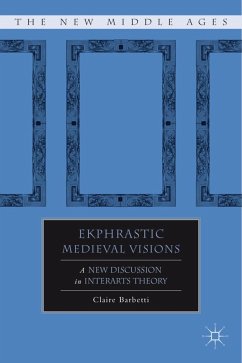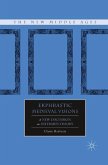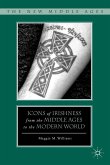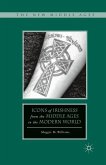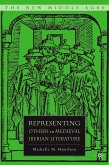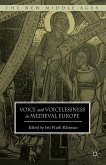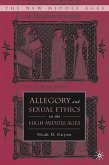Explores the transformative power of ekphrasis in high and late medieval dream visions and mystical visions. Demonstrates that medieval ekphrases reveal ekphrasis as a process rather than a genre and shows how it works with cultural memory to transform, shift, and revise composition.
"Barbetti's book offers a much welcome addition to contemporary poetics and the theory of ekphrasis in particular, which often omits the Middle Ages and its rich resources for thinking the cultural relations between the verbal and visual arts. Ekphrastic Medieval Visions makes a beautiful case for the importance of medieval genres such as the dream-vision for understanding ekphrasis as a dynamic verb that activates a kinetically vibrant body-time-space dimension in poetry, but also in cultural memory." - Eileen A. Joy, Lead Ingenitor of the BABEL Working Group, co-editor of postmedieval: a journal of medieval cultural studies, and editor of The Postmodern Beowulf and Cultural Studies of the Modern Middle Ages
"Recently ekphrasis has been a topic of some interest to scholars of medieval literature. Yet there has been little truly innovative work on the subject of the ekphrastic Middle Ages ... Claire Barbetti's Ekphrastic Medieval Visions: A New Discussion in Interarts Theory is the first text that has completely turned the definition of ekphrasis on its ear ... Barbetti's book is innovative in so many ways. By forcing ekphrasis out of the shadows of the binaries of verbal and visual, of masculine and feminine, of seeing and feeling she has given us a powerful new tool to examine texts in a different and intriguing light." - The Medieval Review
"Recently ekphrasis has been a topic of some interest to scholars of medieval literature. Yet there has been little truly innovative work on the subject of the ekphrastic Middle Ages ... Claire Barbetti's Ekphrastic Medieval Visions: A New Discussion in Interarts Theory is the first text that has completely turned the definition of ekphrasis on its ear ... Barbetti's book is innovative in so many ways. By forcing ekphrasis out of the shadows of the binaries of verbal and visual, of masculine and feminine, of seeing and feeling she has given us a powerful new tool to examine texts in a different and intriguing light." - The Medieval Review

